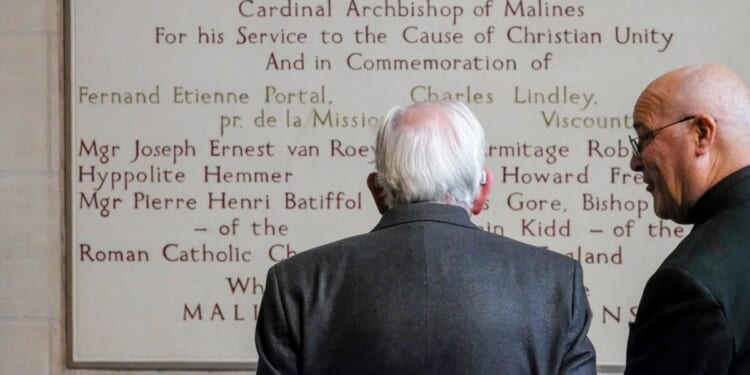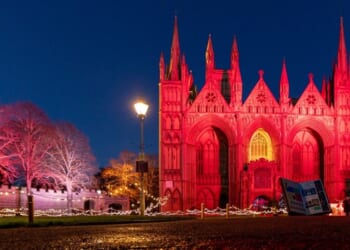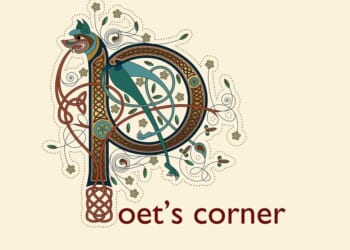ANGLICANS working in different global contexts have spoken of the ways in which they engage from day to day with people of other faiths. Their remarks were part of the penultimate webinar following up the 12 Lambeth Conference “Calls” from 2022. The series has brought together voices around the Communion.
For the Bishop of Kuching, East Malaysia, the Rt Revd Danald Jute — who chairs the Anglican Interfaith Commission — it was about working with those of different beliefs for the common good, while showing solidarity with Christian brothers and sisters facing persecution. Malaysia was 64 per cent Muslim, 18 per cent Buddhist, nine per cent Christian, and six per cent Hindu, and Islam was the official religion of the federation, he said. Those born in Malaysia were Muslims by constitution.
“The rest of us are marginalised, subjugated. Our rights are often trampled on. But, by God’s grace, we are able to do something uniquely in Sarawak. Activists here have come together in interfaith forums, youth exchanges, joint celebrations — even joined in each other’s religious festivals. I believe this is helping in ways that otherwise would have worked against the power of our religion and faith.”
Suvojit Mondal, a programme director from Bangladesh, works with women, children and marginalised groups across the country. Diversity there was the “daily reality” in a country 90 per cent Muslim and eight per cent Hindu: “We live next door to one another. Religion is sometimes political — minorities, including Christians and Hindus, face such issues as land disposition and forced marriage,” he said.
“But families support one another and community leaders initiate dialogue. There’s far more here than the politics of division. Every day, I share meals and struggles with neighbours of different faiths.”
Louise Mojela, from South Africa, chairs Women’s Investment Portfolio Holdings, which brings women together to look for investment opportunities, enabling them to become economically and financially independent. She is also a member of the Anglican Communion’s interfaith committee.
“Working in a world of different faiths has opened my eyes to realise that in the end, we are all God’s creation, all children of God; tolerant of each other’s faiths and with the opportunity to learn from others’ faiths,” she explained. “As women, we can build bridges. Our differences should bring us together for the good we can do for our communities.
“All of us are from different backgrounds. Our focus is to empower young women and children so they grow up to tolerate and respect each other’s dignity, and learn to co-exist in harmony.”
Abigail Lizzi, a lay minister from Argentina, described her country as having hybrid religions and a strong Christian tradition. Roman Catholics account for 62.9 per cent, Evangelicals for 15.3 per cent, and Islam for three per cent; and 18 per cent are of no religion. Argentina also has the largest Jewish community in Latin America.
In a country with high levels of poverty, malnutrition, and mortality — and problems of violence and alcoholism — the presence of Anglican churches had been “transformative”, she said. “It has contributed so much to the emancipation and the justice and dignity of indigenous people, [bringing] the liberating news of the gospel, the reality of Jesus Christ, humanitarian work and the different Christian and secular traditions. They have donated land for education and agricultural training, and enabled churches to respond to climate emergency floods.”
When asked “What makes you feel hopeful?”, she answered that “Argentina is marvellously tolerant and respectful to all religions. It’s constitutionally been open to all Christian traditions, and embraces the catholicity of the Church.”
In a Q&A session, Suvojit Mondal elaborated on his work with people of other faiths in Bangladesh. “Through schools and hospitals, we serve all the people. Leaders at national level participate in debate; local level co-operation is even more visible. Christian pastors work with imams and Buddhist monks — in a longer-term struggle, we would work side-by-side.
“Culturally, we translate worship into tribal languages, making it clear that we don’t come to them as superiors, but partners. When we stand with our neighbours who are suffering, we demonstrate Christ’s love.”
A participant from Canada wondered how he could communicate his faith to Sikhs, Muslims, and those of a New Age faith “who have such vague ideas about God”, he asked. A “slow, gentle sharing of joy and pain” was the consensus in reply.
Another wanted to know whether there was a unique Anglican aspect to interfaith work. Bishop Jute said: “Be genuine. You love Jesus, you love God’s Church. Just be faithful to the gospel and your neighbour, and respect their views.”
Abigal Lizzi responded to a request for advice on interfaith dialogue where one religion had dominance. “We need to respect, recognise the differences and the need to find common ground — understanding who Jesus is and how he carried out his mission, recognising differences but also evangelising with love,” she said
“Can we tell our friends from other faith communities that they are wrong?” another participant asked.
“No, the minute we do that we become judgemental about their beliefs and their faith,” Louise Mojela said. “In South Africa, our faith is entwined and enshrined in our constitution.”
Bishop Jute explained his own ethnic background as 50 per cent Malay. The terms Muslim and Malay were interchangeable, he clarified; but, coming from Sarawak, he belonged to an indigenous group, the Dayaks, who were free to choose their own religion.
In answer to the final question — “How do you balance a call for tolerance and respect for all religions with the call to proclaim Christ in the world?” — Abigail Lizzi said that, while the question could be considered contentious, it was simply “sharing what Jesus means to me. Sharing it in the best way possible by its being about me.”

















